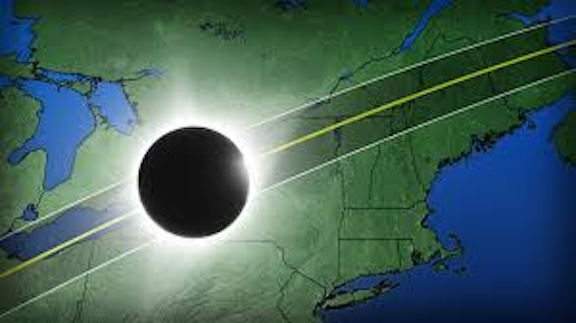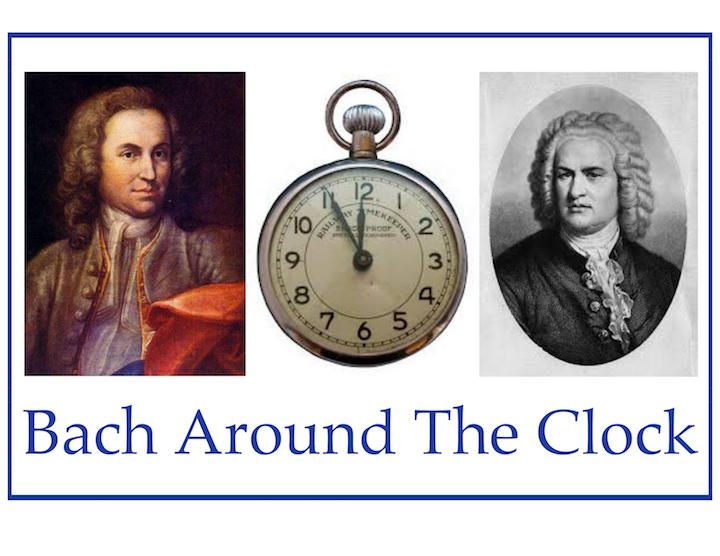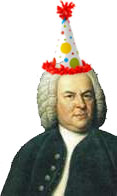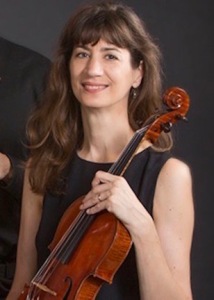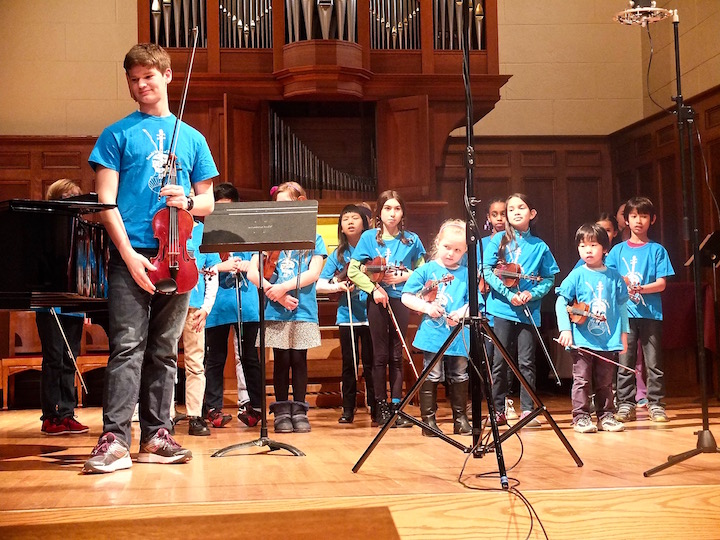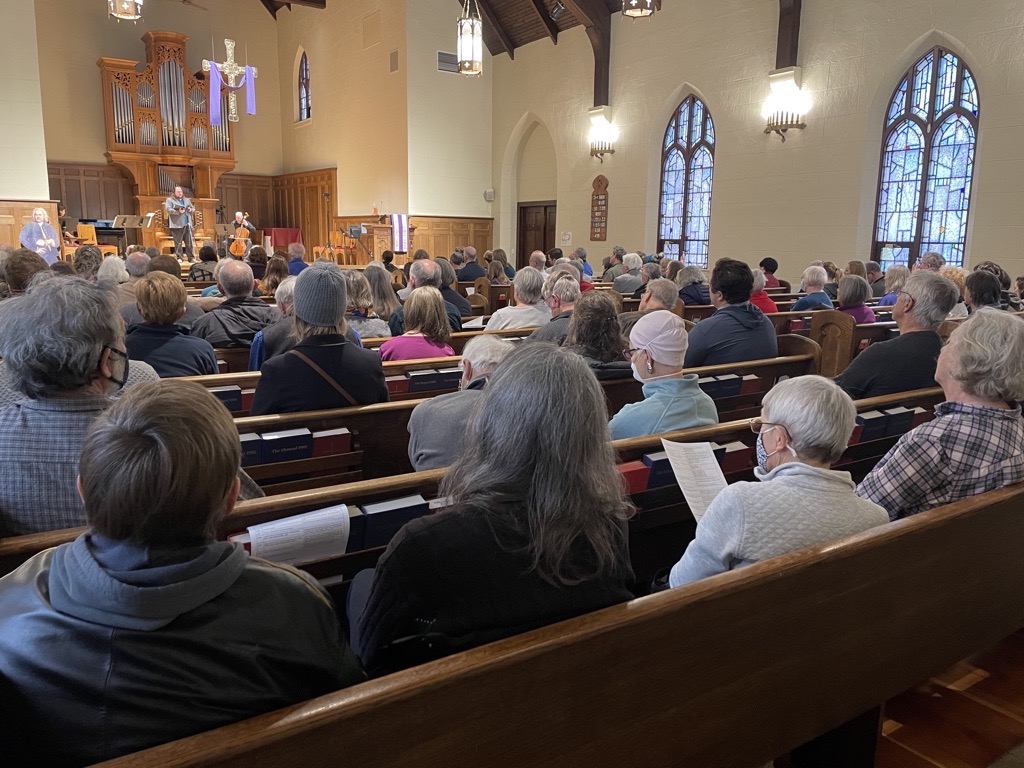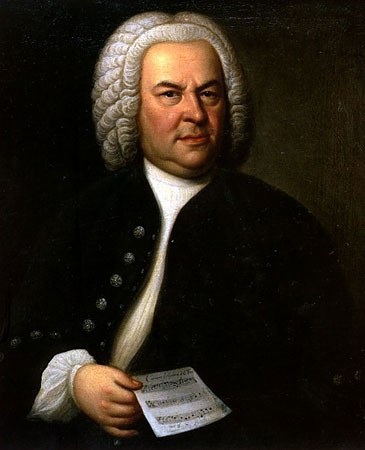The Well-Tempered Ear
Pianist Yuja Wang’s new ‘Vienna Recital’ is another triumph
1 Comment
PLEASE HELP THE EAR. IF YOU LIKE A CERTAIN BLOG POST, SPREAD THE WORD. FORWARD A LINK TO IT OR, SHARE IT or TAG IT (not just “Like” it) ON FACEBOOK. Performers can use the extra exposure to draw potential audience members to an event. And you might even attract new readers and subscribers to the blog.
By Jacob Stockinger
Yuja Wang remains the hottest pianist on the touring concert circuit — and not just for her daring, high fashion clothes and her sensuous legs and arms, and her especially expressive face.
Lang Lang might make more money.
Newcomer Yunchan Lim might inspire more anticipation.
And veterans Martha Argerich and Emanuel Ax might command more authority for their interpretations.
But the supremely talented China-born, U.S.-educated Wang remains in very high critical regard and high popular demand — something that the release just yesterday of her latest album “The Vienna Recital” is sure to sustain and increase.
The recital’s program features an eclectic and somewhat unusual mix of works by Beethoven, Scriabin, Isaac Albéniz, Nikolai Kaspustin and Philip Glass (whose Etude No. 6 you can hear Wang perform in the YouTube video at the bottom.)
The Ear also likes seeing that Wang uses the music through a printed score on what appears to be an iPad.
Here is a link to a rave review by Tal Agam from the The Classic Review that is based in Tel Aviv, Israel:
What do you think of Yuja Wang?
Have you listened to The Vienna Recital?”
What do you think of it?
Do you intend to listen to it?
The Ear wants to hear.
Tags: #BlogPost, #BlogPosting, #FacebookPost, #FacebookPosting, #YouTubevideo, Albeniz, Android, anticipation, Apple, Apple Music, Apple Music Classical, Argerich, arms, Arts, Arturo Márques, Asia, asian, audience, Austria, authority, Autumn, Ax, Beethoven, Bing, blog, born, Brahms, China, Chinese, circuit, Classical music, clothes, composer, Concert, concerto, critic, critical, Curtis Institute of Music, dance, danzón, daring, demand, Deutsche Grammophon, Devil, DG, duckduckgo, eclectic, Education, encore, etude, expressive, face, Facebook, fashion, German, Germany, gifted, Glass, Gluck, Google, Google Alert, Google Alerts, Google Search, hear, high, hot, hottest, Iberia, increase, intermezzo, interpretation, IOS, IPad, Isaac Albéniz, Israel, Jacob Stockinger, Jazz, Kapustin, Korea, Korean, legs, Ligeti, like, Lim, link, listen, Live Recording, Ludwig van Beethoven, melodie, melody, Mexican, Mexico, Microsoft, Microsoft Bing, mix, money, Music, Music education, music review, new, newcomer, Orfeo, Orfeo ed Euridice, OS, People's Republic of Chnia, perform, Philip Glass, Pianist, Piano, popular, PRC, Prelude, prestige, printed, program, rave, recital, recorded music, recording, regard, release, review, Russia, Russian, Safari, Schoenberg, score, Scriabin, sensual, sensuality, sensuous, share, Sonata, South Korea, South Korean, Soviet, Soviet Union, Spain, Spanish, Suite, sustain, tag, talent, talented, technique, Tel Aviv, The Classical Review, The Ear, The Vienna Recital, The Well-Tempered Ear, think, tour, transcription, triumph, Twitter, U.S., United States, unusual, US, use, Veteran, video, Vienna, virtuoso, Wang, Warsaw, Well-Tempered, welltempered, welltemperedear, Wisconsin, Wong, WordPress, Wordpress.com, X, yesterday, you, YouTube, Yuja Wang, Yunchan Lim
Classical music plus tips for watching Monday’s solar eclipse
2 Comments
PLEASE HELP THE EAR. IF YOU LIKE A CERTAIN BLOG POST, SPREAD THE WORD. FORWARD A LINK TO IT OR, SHARE IT or TAG IT (not just “Like” it) ON FACEBOOK. Performers can use the extra exposure to draw potential audience members to an event. And you might even attract new readers and subscribers to the blog.
By Jacob Stockinger
This coming Monday, April 8, will see a rare solar eclipse crossing the United States and visible to varying degrees (below) in different locations. In Madison, it will start at 12:50 p.m. CST, peak at 2:05 and end at 3:20.
It got The Ear to thinking about appropriate classical music to listen to.
But some other information seems more important to convey first:
For last-minute tracking of the eclipse and traveling to see it, here are stories from NPR (National Public Radio) and PBS:
https://www.pbs.org/newshour/science/how-to-watch-the-2024-total-solar-eclipse
And from, MIT (the Massachusetts Institute of Technology), here are tips in the form of a Q&A about how to make the most out of viewing the eclipse:
https://news.mit.edu/2024/qa-brian-mernoff-tips-for-viewing-solar-eclipse-0404
NASA (the National Aeronautics and Space Administration) has some advice about watching the eclipse safely:
https://science.nasa.gov/eclipses/safety
If you want to watch the eclipse in real time from a place where a total eclipse — known as totality — will take place, the PBS NewsHour will live-stream it on YouTube. Here is a link, which also allows you to set up a notification starting at noon on Monday for the real-time broadcast:
A solar eclipse is an event that inspired awe and fear. It caused our pre-historic ancestors to beat the ground with sticks and exchange stories about the wrath of the gods.
These days it leads to even more conspiracy theories by more primitive-minded, far-right conspiracy theorists. Here is an an overview from Rolling Stone magazine of the nonsense that is being promulgated by Alex Jones (below, from Getty Images) and other popular science- and fact-deniers.
The Ear looked for some music to capture the feeling of the eclipse — the mystery and awe when it is happening, and the relief when it is over.
He’s pretty sure that on the radio, internet and elsewhere you will hear excerpts from “The Planets” by Gustav Holst; the “Moonlight” Sonata by Beethoven; maybe Haydn’s “Sunrise” string quartet, “Clair de lune” by Debussy; “Morning Mood” from “Peer Gynt Suite Suite” by Edvard Grieg; “Sunrise” from the “Grand Canyon Suite” by Ferde Grofé; the beautiful sunrise opening of the “Daphnis and Chloe Suite No. 2” by Ravel; and of course the dramatic opening sunrise to “Thus Spake Zarathustra” by Richard Strauss, which was made famous in the movie “2001: A Space Odyssey.”
But The Ear settled on the “Helios Overture” (in the YouTube video at the bottom) by the Danish composer Carl Nielsen. It is a haunting performance by the Royal Concertgebouw Orchestra and the American conductor Alan Gilbert.
Do you have a piece of classical music that you think would be appropriate for watching the eclipse?
The Ear wants to hear.
Tags: #BlogPost, #BlogPosting, #FacebookPost, #FacebookPosting, #YouTubevideo, 2001: A Space Odyssey, 2024, 88.7 FM, 89.9, advice, Alan Gilbert, Alex Jones, AM, America, American, Amsterdam, ancestor, Android, annular eclipse, Apple, appropriate, April, April 8, Arts, astronomy, audience, awe, beautiful, Beethoven, blog, Broadcast, Cello, Central Daylight Time, Chamber music, choral music, Clair de Lune, Classical, Classical music, composer, Concert, Concertgebouw, conservative, conspiracy theory, CST, Danish, Daphnis and Chloe, Debussy, denier, Denmark, different, dramatic, Dutch, Early music, eclipse, Facebook, fact-denier, facts, famous, fear, film, FM, God, gods, Google Alert, Google Search, Grand Canyon, Grieg, Grofe, happen, haunting, Haydn, Helios Overture, idiots, information, Infowars, Internet, Jacob Stockinger, link, live-stream, Ludwig van Beethoven, lunatics, Madison, magazine, Massachusetts Institute of Technology, Microsoft Bing, MIT, Monday, moon, moonlight, Morning Mood, movie, Music, Musica Antiqua, mystery, NASA, National Aeronautics and Space Administration, Netherlands, Nielsen, nonsense, notification, NPR, online, opera, Orchestra, OS, over, Overture, partial, PBS, PBS Newshour, Peer Gynt, peform, performance, Piano, popular, prehistoric, primitive, Radio, rare, Ravel, relief, right-wing, Rolling Stone, royal, Royal Concertgebouw Orchestra, Schubert, science, science-denier, search engine, share, singer, Singing, solar, solar eclipse, Sonata, song, soundtrack, space, stories, story, Strauss, stream, String quartet, Suite, sun, sunrise, symphony, tag, Television, The Ear, The Well-Tempered Ear, Thus Spake Zarathustra, tips, total, totality, TV, U.S., United States, University of Wisconsin-Madison School of Music, University of Wisconsin–Madison, Viola, Violin, vocal music, watch, Well-Tempered, Wisconsin, wisconsin public radio, Wolfgang Amadeus Mozart, WORT, WORT FM, WPR, wrath, YouTube
FREE birthday bash for Johann Sebastian Bach is this Saturday in Madison
4 Comments
PLEASE HELP THE EAR. IF YOU LIKE A CERTAIN BLOG POST, SPREAD THE WORD. FORWARD A LINK TO IT OR, SHARE IT or TAG IT (not just “Like” it) ON FACEBOOK. Performers can use the extra exposure to draw potential audience members to an event. And you might even attract new readers and subscribers to the blog.
By Jacob Stockinger
The Ear thinks of this week’s Bach Around the Clock — which runs March 6-10 — as a double celebration.
The primary one is to mark the 339th birthday of composer Johann Sebastian Bach (below, March 20, 1685-July 28, 1750), whom many consider to be the Big Bang of Western classical music.
The second celebration is to honor the late Madison violist Marika Fischer Hoyt (below), who with help resurrected Bach Around the Clock in Madison after it had been dropped by Wisconsin Public Radio.
Talented, hard-working and congenial, Fischer — who died a year ago of cancer — was a fixture of the local music scene. She was a member of the Wisconsin Chamber Orchestra and spent 20 years playing in the Madison Symphony Orchestra. An outstanding chamber musician, she also helped found and played in the Ancora String Quartet.
An avid proponent of early music using period instruments and historically informed performance practices, Fischer Hoyt helped found and play in the weekly free Just Bach concerts. She performed regularly with the Madison Bach Musicians and with an early music string group she helped found, Sonata à Quattro.
Here is a link to a complete schedule on the BATC website:
The Ear thinks Marika would be very pleased and proud of this year’s event.
It will feature Bach’s original choral and instrumental music in many genres and transcriptions. Soloists and groups of varying sizes will take part. And Bach’s music — so central to the repertoire and all levels of musicianship — will be performed by students (below are members of the Suzuki Strings), by amateurs and by professionals (in the YouTube video at the bottom) — making BATC a truly community-wide celebration of Bach.
The hours for the Birthday Bash concert, which used to run 12 hours, have been cut back to a reasonable and accessible 10 a.m.-5 p.m. at St. Andrew’s Episcopal Church, 1833 Regent St., on Madison’s near west side. But a birthday cake will still be cut at the end.
And in case you want to duck in and out or catch certain performances or performers, here is a full program schedule for Saturday:
https://drive.google.com/file/d/1CIRby29h6wZjyngZgyMPpTrLNiMC_1OR/view
You can find links to all other events and programs — printed in blue — on the main website for the March 6-10 festival.
Performances by performers in their own homes and studios will air online as part of the Virtual Festival held of BATC’s YouTube channel, starting at midnight on this Sunday, March 10. Its runs without a time limit and can be accessed worldwide.
Here is a link to the YouTube channel, which also has past performances
https://www.youtube.com/channel/UCHBRPHSGd_fNECp-qrWsqlQ
Have you attended or heard other Bach Around the Clocks?
What do you think of the celebration?
The Ear wants to hear.
Tags: #BlogPost, #BlogPosting, #FacebookPost, #FacebookPosting, #GoogleAlert, #Hard Work, #YouTubevideo, 2021, 2022, 2023, 2024, accessible, Ancora String Quartet, Android, Arts, attend, Bach Around the Clock, Baroque, BATC, birthday, blog, Brain, cake, cancer, Cantata, celebration, Cello, central, Chamber music, choral music, chorus, church, Classical music, clavichord, community, complete, composer, Concert, concerto, congenial, cut, dead, death, die, died, Early music, Episcopal, event, Facebook, festival, free, fugue, genre, Google, Google Alert, group, harpsichord, hear, historically informed performance practices, Home, honor, instrument, instrumental, Jacob Stockinger, Johann Sebastian Bach, Keyboard, link, Madison, Madison Bach Musicians, Madison Symphony Orchestra, Marika Fischer Hoyt, memory, Music, Musician, musicianship, online, Orchestra, organ, original, OS, Overture, Overture Center, partita, Passion, performance, performer, period instruments, Pianist, Piano, Prelude, program, Protestant, reasonable, repertoire, repertory, share, singer, Singing, soloist, Sonata, Sonata à Quattro, Spple, St. Andrew's Episcopal Church, String quartet, strings, studio, Suite, Suzuki, Suzuki Strings, symphony, tag, talent, The Ear, transcription, tumor, United States, University of Wisconsin-Madison School of Music, University of Wisconsin–Madison, Viola, Violin, violist, virtual, vocal music, volinist, Website, Wisconsin Chamber Orchestra, wisconsin public radio, worldwide, you, YouTube, ytalented
Solving the beautiful mathematics of Bach
Leave a Comment
PLEASE HELP THE EAR. IF YOU LIKE A CERTAIN BLOG POST, SPREAD THE WORD. FORWARD A LINK TO IT OR, SHARE IT or TAG IT (not just “Like” it) ON FACEBOOK. Performers can use the extra exposure to draw potential audience members to an event. And you might even attract new readers and subscribers to the blog.
By Jacob Stockinger
The music of Johann Sebastian Bach (below) doesn’t just sound mathematical.
It IS mathematical.
And although fugues sound the most overtly mathematical of all Bach’s works, you can find complex mathematical and informational patterns to varying degrees in the preludes (below) and overtures, sonatas and partitas, cantatas and oratorios, concertos, suites and toccatas . (In the YouTube video at the bottom, you can hear pianist and Bach specialist Andras Schiff play the long, complex and sublime Prelude and Fugue in B minor, BWV 869, No. 24 from Book I of the Well-Tempered Clavier.
Here is the link to the story about physicists who solved Bach’s math that was featured in Scientific American:
https://www.scientificamerican.com/article/secret-mathematical-patterns-revealed-in-bachs-music
You can also hear plenty of Bach’s beautifully mathematical music live and online for FREE during the upcoming Bach Around the Clock (BATC) celebration of his birthday in Madison. It will take place March 6-10.
Here is a link to the schedule of performers and repertoire both in live performance and virtually online:
Tags: #BaroqueOratorio, #BlogPost, #BlogPosting, #FacebookPost, #FacebookPosting, #YouTubevideo, 2024, András Schiff, Arts, Bach, Bach Around the Clock, Baroque, BATC, beauty, birthday, blog, BWV, Cantata, celebration, Cello, Chamber music, choral music, Classical music, complex, composer, Concert, concerto, Early music, Facebook, free, French, fugue, German, Jacob Stockinger, Johann Sebastian Bach, link, live, long, Madison, Madison Symphony Orchestra, march, math, mathemarics, mathematical, Music, online, oratorio, Orchestra, partita, performance, performer, physicist, physics, Pianist, Piano, Prelude, repertory, repetoire, schedule, Scientific America, share, Sonata, stream, streamed, study, sublime, Suite, symphony, tag, The Ear, toccata, United States, University of Wisconsin-Madison School of Music, University of Wisconsin–Madison, Viola, Violin, virtual, vocal music, Wisconsin, YouTube
YOU MUST HEAR: Alkan’s ‘Barcarolle’
4 Comments
PLEASE HELP THE EAR. IF YOU LIKE A CERTAIN BLOG POST, SPREAD THE WORD. FORWARD A LINK TO IT OR, SHARE IT or TAG IT (not just “Like” it) ON FACEBOOK. Performers can use the extra exposure to draw potential audience members to an event. And you might even attract new readers and subscribers to the blog.
By Jacob Stockinger
One of the standout recordings for The Ear this past year was “Waves.”
It is a recital of Baroque, Romantic and modern French piano music by Bruce Liu (below), who won the 18th Chopin Competition in 2021 and has since skyrocketed to fame.
Here is Liu’s story: https://en.wikipedia.org/wiki/Bruce_Liu
Liu’s first recording for Deutsche Grammophon was a memorable and highly acclaimed all-Chopin recital made up of excerpts from his competition appearances. Recently, “Waves” (below), his second solo recording, was released.
You can enjoy “Waves” for the crisply articulated Rameau theme-and-variations suite. Or for the nuanced Ravel in “Miroirs” (Mirrors).
But Liu — who was born in Paris to Chinese parents, who came of age in Montreal, Canada, and who speaks fluent Mandarin, French and English — manages to unearth a piece that at least this pianophile never heard before and now wants to play.
It is the Barcarolle by the eccentric and misanthropic French-Jewish composer Charles-Valentin Alkan (1833-88, below).
I’m not usually a fan of Alkan.
He possessed a titanic keyboard technique and his music often sounds too much like simply a showcase for it, especially his Solo Concerto for Piano. Too often he sounds just too much over the top, too forced and virtuosic, not naturally lyrical or accessible.
Perhaps that stems from having so little social contact in his personal and artistic life.
Here is a walk-through narrative of his life: https://www.pianotv.net/2016/10/brief-history-charles-alkan/
And here is his Wikipedia biography: https://en.wikipedia.org/wiki/Charles-Valentin_Alkan
But then I heard Liu playing Alkan’s Barcarolle — one of a set of pieces —and was joyfully surprised. It sounds mysterious and wistful, more like a nocturne than a rocking-boat barcarolle to me. And it even sounds playable by amateurs like The Ear.
So I intend to check out more Alkan, especially the short pieces like preludes.
Listen to the 4-minute Barcarolle in the YouTube video at the bottom.
What do you think?
Do you like it? Are you surprised by it?
Would you want to play it?
What do you think of Alkan?
Can you suggest other listenable and even playable pieces by Alkan?
The Ear wants to hear.
Tags: #BlogPost, #BlogPosting, #FacebookPost, #FacebookPosting, #YouTubevideo, accessible, Alkan, amateur, Amazon, Amazon Music, Android, Apple, Apple Music, Apple Music Classical, artistic, Arts, Asia, asian, audience, barcarole, Baroque, biography, blog, Bruce Liu, Canada, Canadian, CD, Charles-Valentin Alkan, China, Chinese, Chopin, Chopin Competition, Chopin International Piano Competition, Classical music, composer, Concert, concerto, Deutsche Grammophon, DG, eccentric, English, Europe, Facebook, fame, fluent, force, France, French, Google, Idagio, Jacob Stockinger, Jewish, language, life, link, lyrical, Mandarin, memorable, misanthropic, modern, Music, nocturne, Orchestra, Paris, perform, performance, Pianist, Piano, piano recital, pianophile, pianotv.net, play, Poland, Polish, Prelude, Rameau, Ravel, recital, recorded, recorded music, recording, Romantic, share, skyrocket, social, Spotify, Suite, The Ear, theme and variations, United States, vinyl, virtuoso, Warsaw, Wikipedia, YouTube
Here are winners of major international music competitions in 2023. What’s next?
Leave a Comment
PLEASE HELP THE EAR. IF YOU LIKE A CERTAIN BLOG POST, SPREAD THE WORD. FORWARD A LINK TO IT OR, SHARE IT or TAG IT (not just “Like” it) ON FACEBOOK. Performers can use the extra exposure to draw potential audience members to an event. And you might even attract new readers and subscribers to the blog.
By Jacob Stockinger
Which young, up-and-coming classical musicians should you keep an eye on during the coming year?
Which ones, if any, will be booked in coming years to performance locally, say, at the Madison Symphony Orchestra, the Wisconsin Chamber Orchestra and the Wisconsin Union Theater; or at the Salon Piano Series; or as a University of Wisconsin Mead Witter School of Music guest artist?
One guide to 2024 and beyond might be to review the winners of the international music competitions held in 2023.
Thanks to The Violin Channel, here is a list of many such winners who may go on to establish more prominent careers. If you click on the names of the competitions, posted in red, you will be linked to fuller stories about the competitions, many of which you have probably never heard of. The Ear follows many contests but had never heard of many of these.
Here is a link:
You can find out about histories of the competitions, other prize winners, places they are held and how often, jury members and contest rules and formats, and more. And you can hear excerpts from some prestigious competitions including the Bischoff Chamber Music competition and a competition for young child prodigy violinists in Italy.
At the bottom of the story, you can hear a YouTube video with the 19-year-old, Asian-American pianist Magdelena Ho in her contest-winning performance of Beethoven’s Piano Concerto No. 4 at the Clara Haskil Competition in Switzerland. She looks to have a promising future.
The winners came all continents — Asian, Africa, North America, South America and Europe.
And the competitions were held in many different places and focused on many different kinds or genres of classical music: violin, viola, cello, double bass and guitar; piano; saxophone;mharp; percussion and drums; chamber music and symphonic music; conducting; singing; and early music.
At the bottom is a vibrant performance of a familiar Bach suite by Canadian cellist Luka Coetzee who won Finland’s Paulo Competition and also took first prize at the Pablo Casals Competition on 2022.
Tags: #BlogPost, #BlogPosting, #FacebookPost, #FacebookPosting, #Up-and-Coming, #YouTubevideo, 2023, 2024, Africa, African, America, American, Android, Ann Arbor, Apple, Arts, Asia, asian, audience, Bach, Baroque, Beethoven, Bischoff, blog, Bonn, Boston, brass, Canada, Canadian, Cello, Chamber music, Child, children, China, Chinese, choral music, Clara Haskil, Classical, Classical music, composer, Concert, concerto, conductor, continent, contralto, double bass, drums, Early music, Europe, Facebook, Finland, Finnish, format, France, French, future, genre, geography, German, Germany, Google, guest artist, guitar, Hanover, harp, History, Ho, international, Italian, Italy, Jacob Stockinger, Johann Sebastian Bach, Kim, kind, Korean, Leonid Kogan, link, Ludwig van Beethoven, Mac, MacBook, Madison, Madison Symphony Orchestra, Massachusetts, Mead Witter School of Music, Michigan, Mozart, Music, music competition, Musician, North America, opera, Orchestra, OS, Overture Center, PC, Penderecki, percussion, perform, performance, Pianist, Piano, Poland, Polisy, prize, prodigies, prodigy, Romania, Romanian, rules, Russia, Russian, Salon Piano Series, Saxophone, Serge Koussevitsky, share, singer, Singing, Sonata, song, soprano, South Africa, South African, South America, South Korea, South Korean, stream, strong, study, Suite, Swiss, Switzerland, symphony, tag, Teacher, The Ear, U.S., United States, University of Wisconsin-Madison School of Music, University of Wisconsin–Madison, UW, UW-Madison, Viola, Violin, Violin Channel, violinist, violist, vocal music, Wee, win, Wisconsin, Wisconsin Chamber Orchestra, Wisconsin Union Theater, Wolfgang Amadeus Mozart, won, year, young, young artists, YouTube
Here are the classical music nominees for the 2024 Grammy Awards
Leave a Comment
PLEASE HELP THE EAR. IF YOU LIKE A CERTAIN BLOG POST, SPREAD THE WORD. FORWARD A LINK TO IT OR, SHARE IT or TAG IT (not just “Like” it) ON FACEBOOK. Performers can use the extra exposure to draw potential audience members to an event. And you might even attract new readers and subscribers to the blog.
By Jacob Stockinger
The 2024 GRAMMYs, officially known as the 66th GRAMMY Awards (below, illustration courtesy of the Recoding Academy), will air live (8:00-11:30 PM, LIVE ET/5:00-8:30 PM, LIVE PT) on the CBS Television Network.
The show will also stream on Paramount+ (live and on demand for Paramount+ with SHOWTIME subscribers, or on demand for Paramount+ Essential subscribers the day after the special airs).
You’ll notice by the number of the categories that classical music is at the bottom of the list. The Grammys are intended primarily to promote important and profitable contributions to the industry as well as the quality of the music and performances.
For a complete list of all the categories and major nominees — including nominations for superstar Taylor Swift and the smash hit movie “Barbie” — go to: https://www.grammy.com/news/2024-grammys-nominees-record-of-the-year.
Here is a listing of the classical music nominations, which were announced yesterday, Friday, Nov. 10, 2023. The list can be helpful if you are looking for new recording to buy or stream. You can also hear promos and excerpts of most of the nominees on YouTube.
For a listing of previous classical music winners, go to: https://www.grammy.com/music-genre/classical. Click on the lower button that says “ALL NOMINATIONS FROM THIS GENRE.”
87. Best Orchestral Performance
Award to the Conductor and to the Orchestra.
Adès: Dante
Gustavo Dudamel, conductor (Los Angeles Philharmonic)
Bartók: Concerto For Orchestra; Four Pieces
Karina Canellakis, conductor (Netherlands Radio Philharmonic Orchestra)
Price: Symphony No. 4; Dawson: Negro Folk Symphony
Yannick Nézet-Séguin, conductor (The Philadelphia Orchestra)
Scriabin: Symphony No. 2; The Poem Of Ecstasy
JoAnn Falletta, conductor (Buffalo Philharmonic Orchestra)
Stravinsky: The Rite Of Spring
Esa-Pekka Salonen, conductor (San Francisco Symphony)
88. Best Opera Recording
Award to the Conductor, Album Producer(s) and Principal Soloists, and to the Composer and Librettist (if applicable) of a world premiere Opera recording only.
Blanchard: Champion
Yannick Nézet-Séguin, conductor; Ryan Speedo Green, Latonia Moore & Eric Owens; David Frost, producer (The Metropolitan Opera Orchestra; The Metropolitan Opera Chorus)
Corigliano: The Lord Of Cries
Gil Rose, conductor; Anthony Roth Costanzo, Kathryn Henry, Jarrett Ott & David Portillo; Gil Rose, producer (Boston Modern Orchestra Project & Odyssey Opera Chorus)
Little: Black Lodge
Timur; Andrew McKenna Lee & David T. Little, producers (The Dime Museum; Isaura String Quartet)
89. Best Choral Performance
Award to the Conductor, and to the Choral Director and/or Chorus Master where applicable and to the Choral Organization/Ensemble.
Carols After A Plague
Donald Nally, conductor (The Crossing)
The House Of Belonging
Craig Hella Johnson, conductor (Miró Quartet; Conspirare)
Ligeti: Lux Aeterna
Esa-Pekka Salonen, conductor (San Francisco Symphony Chorus)
Rachmaninoff: All-Night Vigil
Steven Fox, conductor (The Clarion Choir)
Saariaho: Reconnaissance
Nils Schweckendiek, conductor (Uusinta Ensemble; Helsinki Chamber Choir)
90. Best Chamber Music/Small Ensemble Performance
For new recordings of works with chamber or small ensemble (twenty-four or fewer members, not including the conductor). One Award to the ensemble and one Award to the conductor, if applicable.
American Stories
Anthony McGill & Pacifica Quartet
Beethoven For Three: Symphony No. 6, ‘Pastorale’ And Op. 1, No. 3
Yo-Yo Ma, Emanuel Ax & Leonidas Kavakos
Between Breaths
Third Coast Percussion
Rough Magic
Roomful Of Teeth
Uncovered, Vol. 3: Coleridge-Taylor Perkinson, William Grant Still & George Walker
Catalyst Quartet
91. Best Classical Instrumental Solo
Award to the Instrumental Soloist(s) and to the Conductor when applicable.
Adams, John Luther: Darkness And Scattered Light
Robert Black
Akiho: Cylinders
Andy Akiho
The American Project
Yuja Wang; Teddy Abrams, conductor (Louisville Orchestra)
Difficult Grace
Seth Parker Woods
Of Love
Curtis Stewart
92. Best Classical Solo Vocal Album
Award to: Vocalist(s), Collaborative Artist(s) (Ex: pianists, conductors, chamber groups) Producer(s), Recording Engineers/Mixers with greater than 50% playing time of new material.
Because
Reginald Mobley, soloist; Baptiste Trotignon, pianist
Broken Branches
Karim Sulayman, soloist; Sean Shibe, accompanist
40@40
Laura Strickling, soloist; Daniel Schlosberg, pianist
Rising
Lawrence Brownlee, soloist; Kevin J. Miller, pianist
Walking In The Dark
Julia Bullock, soloist; Christian Reif, conductor (Philharmonia Orchestra)
93. Best Classical Compendium
Award to the Artist(s) and to the Album Producer(s) and Engineer(s) of over 50% playing time of the album, and to the Composer and Librettist (if applicable) with over 50% playing time of a world premiere recording only.
Fandango
Anne Akiko Meyers; Gustavo Dudamel, conductor; Dmitriy Lipay, producer
Julius Eastman, Vol. 3: If You’re So Smart, Why Aren’t You Rich?
Christopher Rountree, conductor; Lewis Pesacov, producer
Mazzoli: Dark With Excessive Bright
Peter Herresthal; Tim Weiss, conductor; Hans Kipfer, producer
Passion For Bach And Coltrane
Alex Brown, Harlem Quartet, Imani Winds, Edward Perez, Neal Smith & A.B. Spellman; Silas Brown & Mark Dover, producers
Sardinia
Chick Corea; Chick Corea & Bernie Kirsh, producers
Sculptures
Andy Akiho; Andy Akiho & Sean Dixon, producers
Zodiac Suite
Aaron Diehl Trio & The Knights; Eric Jacobsen, conductor; Aaron Diehl & Eric Jacobsen, producers
94. Best Contemporary Classical Composition
A Composer’s Award. (For a contemporary classical composition composed within the last 25 years, and released for the first time during the Eligibility Year.) Award to the librettist, if applicable.
Adès: Dante
Thomas Adès, composer (Gustavo Dudamel & Los Angeles Philharmonic)
Akiho: In That Space, At That Time
Andy Akiho, composer (Andy Akiho, Ankush Kumar Bahl & Omaha Symphony)
Brittelle: Psychedelics
William Brittelle, composer (Roomful Of Teeth)
Mazzoli: Dark With Excessive Bright
Missy Mazzoli, composer (Peter Herresthal, James Gaffigan & Bergen Philharmonic)
Montgomery: Rounds
Jessie Montgomery, composer (Awadagin Pratt, A Far Cry & Roomful Of Teeth)
Do you know any of these Grammy nominations?
What one do you recommend or think should win?
The Ear wants to hear.
Tags: #BlogPost, #BlogPosting, #FacebookPost, #FacebookPosting, #YouTubevideo, academy, accompanist, accompany, Adès, African American, Album, America, American, Anne Akiko Meyers, Anthony McGill, Apple, Arts, audience, Awadagin Pratt, Bach, Barbie, Baroque, Bartok, Beethoven, Bergen, best, black, blog, blues, Boston, California, Carol, Catalyst Quartet, CBS, Cedille Records, cellist, Cello, Chamber music, champion, Chick Corea, choral music, Classical music, Coleridge-Taylor Perkinson, Coltrane, compendium, composer, Concert, concerto, conductor, contemporary composer, contemporary music, Corigliano, cries, Dante, drugs, Early music, Emanuel Ax, ensemble, Essa-Pekka Salonen, Europe, Facebook, Fandango, female, film, Finland, Florence Price, folk, genre, George Walker, Google, grace, Grammy Award, Grammys, Gustavo Dudamel, Harlem, Helsinki, Imani Winds, industry, Jacob Stockinger, Jazz, Jessie Montgomery, JoAnn Falletta, Johann Sebastian Bach, John Luther Adams, Latin, Leonidas Kavakos, Ligeti, link, live, Lord, Los Angeles Philharmonic, Louisville Orchestra, Love, Ludwig van Beethoven, Madison, Madison Symphony Orchestra, Mazzoli, Metropolitan Orchestra, movie, Mozart, Music, Negro, network, nomination, nominee, Norway, opera, Orchestra, Overture Center, Pacifica Quartet, paramount, percussion, performance, Philadelphia Orchestra, Philharmonia Orchestra, Pianist, Piano, Piano Trio, plague, pop, producer, profitable, promote, psychedelics, quality, Rachmaninoff, Rachmaninov, recorded music, Rock, Roomful of Teeth, Saariaho, San Francisco, Scriabin, share, Showtime, singer, Singing, solo, Sonata, soundtrack, space, stories, story, Stravinsky, stream, String quartet, Suite, symphony, tag, Taylor Swift, Television, Terrence Blanchard, The Ear, The Knights, the Met, Third Coast Percussion, time, trio, United States, University of Wisconsin-Madison School of Music, University of Wisconsin–Madison, Viola, Violin, violinist, vocal music, Website, William Dawson, Willian Grant Still, Wisconsin, Wolfgang Amadeus Mozart, women, world premiere, Yannick Nézet-Séguin, Yo-Yo Ma, YouTube, Yuja Wang, Zodiac
Music builds brain health. Which composers and pieces would you recommend?
6 Comments
PLEASE HELP THE EAR. IF YOU LIKE A CERTAIN BLOG POST, SPREAD THE WORD. FORWARD A LINK TO IT OR, SHARE IT or TAG IT (not just “Like” it) ON FACEBOOK. Performers can use the extra exposure to draw potential audience members to an event. And you might even attract new readers and subscribers to the blog.
By Jacob Stockinger
If you think music education and music lessons are only for young people who are still growing and maturing, you couldn’t be more wrong.
More and more research studies show that in adults and older people, even in Alzheimer’s patients, music has force and can break through.
Music is — like many other kinds of art including poetry, dance and paintings — a key that unlocks the plasticity of the human brain (below is an image from Shutterstock) and the brain’s ability to grow and endure in a healthy manner.
Here is one of the most recent studies that was covered in a story by NPR (National Public Radio), which you can read or listen to:
https://www.npr.org/sections/health-shots/2023/04/03/1167494088/your-brain-on-art-music-dance-poetry
The Ear finds it convincing food for thought.
Certain genres of music, for example, come to mind as brain-healthy. Think Schubert. Art songs which combine music and words, even poetry, seem an especially likely candidate.
String quartets and theme-and-variations also come to mind as artistic and brain-developing genres. So does the sonata form that is used to develop and establish harmonic and thematic logic in symphonies and concertos as well as sonatas.
As for specific composers, The Ear thinks Johann Sebastian Bach (below) stands out as a one whose music requires active listening and critical thinking.
Preludes and fugues by Johann Sebastian Bach (below and in the YouTube video at the bottom where Friedrich Gulda plays the Prelude and Fugue No. 1 of the WTC) in The Well-Tempered Clavier and his many suites and Beethoven’s string quartets, especially the late ones, are individual challenging works that do the same.
Are there musical genres that you think are good for the brain and would recommend?
Are there certain composers you think are especially helpful in building brain health?
Are there any particular pieces that you think also work toward brain health and plasticity?
The Ear wants to hear.
Tags: #BlogPost, #BlogPosting, #FacebookPost, #FacebookPosting, #YouTubevideo, adults, Alzheimer's, Art, art songs, Arts, audience, Bach, Baroque, Beethoven, blog, Brain, build, candidate, challenge, challenging, Chamber music, children, choral music, Classical music, composer, concerto, connectivity, creativity, critical thinking, dance, develop, Disease, Early music, Education, endure, Facebook, force, Franz Schubert, Friedrich Gulda, fugue, genetics, genre, grow, Gulda, harmonic, harmony, Health, human brain, Jacob Stockinger, Johann Sebastian Bach, link, listen, listening, logic, Ludwig van Beethoven, mature, medicine, Music, music lessons, National Public Radio, NPR, old people, Orchestra, painting, Piano, piece, plasticity, poem, Poetry, Prelude, read, recommend, research, Schubert, science, seniors, share, Sonata, song, String quartet, structure, study, Suite, symphony, synapse, tag, technology, The Ear, thematic, theme, theme and variations, think, Violin, vocal music, Well-Tempered Clavier, wisconsin public radio, Wolfgang Amadeus Mozart, words, work, WPR, young people, YouTube
Nobody expressed romantic love in music better or more often than Robert Schumann
7 Comments
PLEASE HELP THE EAR. IF YOU LIKE A CERTAIN BLOG POST, SPREAD THE WORD. FORWARD A LINK TO IT OR, SHARE IT or TAG IT (not just “Like” it) ON FACEBOOK. Performers can use the extra exposure to draw potential audience members to an event. And you might even attract new readers and subscribers to the blog.
By Jacob Stockinger
Today — Feb. 14, 2023 — is Valentine’s Day.
When it comes to composing music that expresses romantic love, The Ear thinks nobody did it more consistently or better than Robert Schumann.
Inspired by his wife Clara, a former student who defied her father to marry Robert, Schumann (seen below with Clara) put romantic love at the heart of so many pieces.
One of his finest is the second movement of the eight-movement piano suite “Kreisleriana,” Op. 16. Perhaps you will agree after listening to it played by Martha Argerich in the YouTube video below.
Check it out.
Does it move you?
If you have a different choice for a composer or a piece suitable for the occasion today, please include it, perhaps with a YouTube link, as a comment.
Happy Valentine’s Day
The Ear wants to hear.
Tags: #BlogPost, #BlogPosting, #ClaraSchumann, #FacebookPost, #FacebookPosting, #MarthaArgerich, #RobertSchumann, #TheEar, #YouTubevideo, Arts, blog, Clara Schumann, Classical music, composer, cupid, express, Facebook, Jacob Stockinger, Kreisleriana, link, Love, Martha Argerich, Music, occasion, Piano, piece, Robert Schumann, Romantic, Schumann, share, Suite, tag, The Ear, Valentine's Day, YouTube
YOU MUST HEAR THIS: No piece captures the mixed emotions of Memorial Day better than Charles Ives’ “Decoration Day”
3 Comments
PLEASE HELP THE EAR. IF YOU LIKE A CERTAIN BLOG POST, SPREAD THE WORD. FORWARD A LINK TO IT OR, SHARE IT or TAG IT (not just “Like” it) ON FACEBOOK. Performers can use the extra exposure to draw potential audience members to an event. And you might even attract new readers and subscribers to the blog.
By Jacob Stockinger
Today is Memorial Day, 2022.
It is the annual holiday to remember those who died in military service to the country. (Below are flags placed each year at the tombstones in Arlington National Cemetery in Virginia.)
If you want to honor survivors and current service members, that would be Veterans Day on Nov. 11.
All weekend long the radio has been playing music and the television has been showing war movies.
A lot of the music is familiar and repeated every year: Sousa marches and Morton Gould suites, elegies by Gustav Mahler, Samuel Barber, Aaron Copland and Leonard Bernstein; requiems by Mozart and Fauré; a hymn by John Williams and other movie scores. This year has also seen the playlist include rediscovered works of homage by African-American composers such as William Grant Still.
But only this year did The Ear finally hear — thanks to Wisconsin Public Radio — the one piece that, to his mind, best captures Memorial Day with its blending of consonance and dissonance, its mix of major and major keys, of familiar or “found” music and original music.
It is called, simply, “Decoration Day” and it was composed in 1912 — but not published until 1989 — by the 20th-century iconoclastic and early modernist American composer Charles Ives (below, 1874-1954). It ended up as part of a work the composer called “A Symphony: New England Hollidays.”
See if you agree with The Ear.
Listen to the 8-minute performance by “The President’s Own” United States Marine Band in the YouTube video at the bottom.
Listen to the deep anguish and and sense of loss conveyed in the opening, when a solemn remembrance procession goes to a cemetery to plant flags and lay flowers and wreaths to “decorate” the graves of the fallen.
Listen carefully and you will hear a faint version of “Taps” and ringing church bells in the atmospheric music.
Then as so often happens in reality, life suddenly intrudes in the form of a celebration by a loud marching brass band as it leaves the cemetery for the celebratory marches, picnics and fireworks.
But at the end, the darkness briefly returns. The sense of loss lingers long after the actual death and long after the holiday has been celebrated.
There is no closure.
Just resignation.
Just living with loss.
Here is the background from Wikipedia about how the holiday started as Decoration Day after the Civil War and when it evolved into Memorial Day in 1970: https://en.wikipedia.org/wiki/Memorial_Day
And here is biographical background, with the actual sources and depictions of “Decoration Day” — just go down the page to compositions and click — about Charles Ives: https://en.wikipedia.org/wiki/Charles_Ives
Did you know and like Charles Ives’ music?
Does “Decoration Day” impress or move you?
What music most embodies Memorial Day for you?
The Ear wants to hear.
Tags: #AaronCopland, #African-AmericanComposer, #ArlingtonNationalCemetery, #BandMusic, #BlackAmericans, #BlogPost, #BlogPosting, #BrassBand, #BrassMusic, #CharlesIves, #ChurchBells, #CivilWar, #DecorationDay, #FacebookPosting, #GabrielFaure, #GustavMahler, #JacobStockinger, #JohnPhilipSousa, #JohnWilliams, #LeonardBernstein, #MajorKey, #MemorialDay, #MilitaryService, #MinorKey, #MixedEmotions, #MortonGould, #NationalPublicRadio, #NewEngland, #OrchestralMusic, #OriginalWork, #SamuelBarber, #TheEar, #ThePresident, #TheU.S., #UnitedStates, #UnitedStatesMarineBand, #USMarines, #VeteransDay, #WarMovies, #Wikipediaentry, #WilliamGrantStill, #WisconsinPublicRadio, #WolfgangAmadeusMozart, #YouTubevideo, 20th-century, 20th-century music, Aaron Copland, actual, African American, American, American Civil War, Ameriuca, anguish, annual, Arlington, Arlington National Cemetery, Arts, atmosphere, atmospheric, audience, background, band, band music, Barber, Bernstein, biographical, black, blog, bottom, brass band, brass music, celebration, celebratory, cemetery, Charles Ives, church, church bells, Civil War, Classical music, Classical Revolution, closure, compose, composer, Composition, Concert, consonance, Copland, darkness, dead, death, Decoration Day, deep, depiction, dissonance, early, Early music, Elegy, embody, emotion, evolution, evolve, Facebook, fallen, familiar, Fascebook, Faure, film, Fireworks, flag, flower, found, Gabriel Fauré, Gould, grave, Gustav Mahler, hear, Holiday, homage, honor, hymn, iconoclast, iconoclastic, impress, information, intrude, Ives, Jacob Stockinger, John Philip Sousa, John Williams, Leonard Bernstein, life, like, linger, listen, living, loss, loud, Mahler, major key, march, Marines, mark, Memorial Day, military, minor key, minute, mixed, modern, modernist, morph, Morton Gould, move, Movies, Mozart, nation, national, National Public Radio, New England, NPR, opening, orchestral, original, performance, picnic, piece, plant, playlist, post, posting, President, procession, psalm, publish, Radio, reality, rediscover, remembrance, repeat, Samuel Barber, score, sense, service, show, solemn, soundtrack, source, sources, Sousa, Still, suddenly, Suite, symphony, Taps, Television, thanks, The Ear, TV, U.S., United State Marine Band, United States, veterans, Veterans Day, video, war, war movies, weekend, Wikipedia, William Grant Still, Williams, wisconsin public radio, Wolfgang Amadeus Mozart, work, wreaty, year, you, YouTube
- May 2024
- April 2024
- March 2024
- February 2024
- January 2024
- December 2023
- November 2023
- October 2023
- September 2023
- August 2023
- July 2023
- June 2023
- May 2023
- April 2023
- March 2023
- February 2023
- January 2023
- December 2022
- October 2022
- September 2022
- June 2022
- May 2022
- April 2022
- March 2022
- July 2021
- June 2021
- May 2021
- April 2021
- March 2021
- February 2021
- January 2021
- December 2020
- November 2020
- October 2020
- September 2020
- August 2020
- July 2020
- June 2020
- May 2020
- April 2020
- March 2020
- February 2020
- January 2020
- December 2019
- November 2019
- October 2019
- September 2019
- August 2019
- July 2019
- June 2019
- May 2019
- April 2019
- March 2019
- February 2019
- January 2019
- December 2018
- November 2018
- October 2018
- September 2018
- August 2018
- July 2018
- June 2018
- May 2018
- April 2018
- March 2018
- February 2018
- January 2018
- December 2017
- November 2017
- October 2017
- September 2017
- August 2017
- July 2017
- June 2017
- May 2017
- April 2017
- March 2017
- February 2017
- January 2017
- December 2016
- November 2016
- October 2016
- September 2016
- August 2016
- July 2016
- June 2016
- May 2016
- April 2016
- March 2016
- February 2016
- January 2016
- December 2015
- November 2015
- October 2015
- September 2015
- August 2015
- July 2015
- June 2015
- May 2015
- April 2015
- March 2015
- February 2015
- January 2015
- December 2014
- November 2014
- October 2014
- September 2014
- August 2014
- July 2014
- June 2014
- May 2014
- April 2014
- March 2014
- February 2014
- January 2014
- December 2013
- November 2013
- October 2013
- September 2013
- August 2013
- July 2013
- June 2013
- May 2013
- April 2013
- March 2013
- February 2013
- January 2013
- December 2012
- November 2012
- October 2012
- September 2012
- August 2012
- July 2012
- June 2012
- May 2012
- April 2012
- March 2012
- February 2012
- January 2012
- December 2011
- November 2011
- October 2011
- September 2011
- August 2011
- July 2011
- June 2011
- May 2011
- April 2011
- March 2011
- February 2011
- January 2011
- December 2010
- November 2010
- October 2010
- September 2010
- August 2010
- July 2010
- June 2010
- May 2010
- April 2010
- March 2010
- February 2010
- January 2010
- December 2009
- November 2009
- October 2009
- September 2009
- August 2009
Archives
- 2,491,226 hits
Blog Stats
Recent Comments
| Brian Jefferies on Classical music: A major reass… | |
| welltemperedear on What made Beethoven sick and… | |
| rlhess5d5b7e5dff on What made Beethoven sick and… | |
| welltemperedear on Beethoven’s Ninth turns 200… | |
| Robert Graebner on Beethoven’s Ninth turns 200… |
Tags
#BlogPost #BlogPosting #ChamberMusic #FacebookPost #FacebookPosting #MeadWitterSchoolofMusic #TheEar #UniversityofWisconsin-Madison #YouTubevideo Arts audience Bach Baroque Beethoven blog Cello Chamber music choral music Classical music Compact Disc composer Concert concerto conductor Early music Facebook forward Franz Schubert George Frideric Handel Jacob Stockinger Johannes Brahms Johann Sebastian Bach John DeMain like link Ludwig van Beethoven Madison Madison Opera Madison Symphony Orchestra Mead Witter School of Music Mozart Music New Music New York City NPR opera Orchestra Overture Center performer Pianist Piano post posting program share singer Sonata song soprano String quartet Student symphony tag The Ear United States University of Wisconsin-Madison School of Music University of Wisconsin–Madison Viola Violin vocal music Wisconsin Wisconsin Chamber Orchestra wisconsin public radio Wolfgang Amadeus Mozart YouTube

